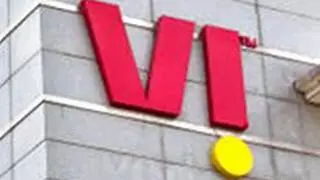He has steered Franklin Templeton’s equity funds through three bear markets, building up a formidable reputation for consistency with 20 per cent-plus returns. But KN Sivasubramanian, Chief Investment Officer (Franklin India Equity), who has announced his retirement by month-end, is the very anti-thesis of the flashy ‘star’ fund manager.
Fond of under-statement, he would seldom employ adjectives to describe fund performance. Always pragmatic, he would refuse to predict the Sensex and instead talk passionately about companies and fundamentals. Despite his self-deprecating manner, he brought a high degree of passion to the portfolios he managed, prompting a colleague to observe, “When Siva had conviction about any stock, he would bet quite hard on it. It is difficult to emulate his style”. We struck up a conversation with the ace stock-picker ahead of his retirement by the end of this month.
It is rare to find portfolio managers who stay with one firm throughout their career. You have completed a twenty-year stint with Franklin Templeton. Didn’t you ever feel the temptation to move?
The credit goes to the firm. We’ve been part of the team that built the firm in the initial years at Kothari Pioneer.
Now I’ve spent more time with Franklin Templeton than I did with Kothari Pioneer. The work atmosphere and kind of freedom you get here makes sure that you don’t want to leave. If you get everything you want, why leave?
Why do you want to hang up your boots now? Investors would probably have liked to see you managing funds for some more time.
Well, I have just turned 50. All of us have one life. You don’t know how long you have. You need to see how best you can utilise the balance portion of your life.
You are not going to be doing any equity-related work?
I would like to avoid specifically that. When you have someone competent managing your money, and they are working hard at it, why re-invent the wheel?
So, your money will remain invested in the Franklin Templeton funds?
All of it. For me to do well, the funds have to do well. I believe the markets should do very well in the next five years and the funds should do better than that.
What has been your best period during these twenty years and the worst?
The most difficult phase was during the big bull market of 2006-07. The rest of the twenty years was quite good. It is difficult to keep your head in a bull market.
The way you evaluate companies doesn’t hold good, as every stock is moving. Bear markets are far easier because everybody focuses on the conventional metrics.
Phases like the dotcom boom in 1999, when valuations go through the roof, make it difficult for a fundamental investor to hold on to his conviction.
You’ve always argued for avoiding companies with governance issues. That stance has been vindicated quite strongly in the last five years, with the market paying a very high premium for quality. Do you think this will continue?
We need to focus on quality. But we also need to keep our eyes on relative value and search for stocks that can deliver growth at a reasonable price.
There are many phases when contrarian plays work well and we need to be vigilant about that. While quality is something to look for, it is not that we will pay any price for quality.
So what do you want to do now that you’ve retired?
I want to spend time with my family. That’s priority No. 1. My parents are quite aged now. I would like to spend the rest of the time reading. It will also be nice not to have a time table; not to begin the day with the 8.30 morning meeting. Not having to watch the markets will be quite a relief.
You’ve never been an avid watcher of the ticker. So are you referring to the fact that there are too many events to keep track of?
Tracking events has become difficult. But if you look back at your own (newspaper’s) headlines over the last five years, many of them have had no impact on the market over time. They may have had some impact that very day. When you filter out the noise, 99 per cent of the information we get doesn’t matter. We need to be disciplined in sifting through that information.
This business is more about discipline than intelligence. If you get the process right, the chances of your outperforming keep improving over a period of time.
A third of trades today originate from algo and short-term trades and technicals have many followers. Does fundamental investing work at all?
We need the traders because they are the ones to provide liquidity. Obviously, we need people with different views in the market. But the basic premise of long-term investing is that you would like to share in the growth of businesses. You need to act like a businessman. You don’t flip your company everyday, if you are running a business on your own. The plus-point of being an investor, as opposed to the owner of a business, is that if we make a mistake, your exits are much easier. That gives us the best of both the worlds. Mistakes are more painless for us, given that we diversify across stocks, as compared to the entrepreneur.
What are your thoughts as you hand over the portfolios to Anand (Radhakrishnan)?
I see it as progress. You cannot be but happy if somebody better takes over from you. There is no doubt that we (as a team) are getting better over time. From a Wild West kind of situation when I joined, the fund management profession has come a long way. We had to learn on the job, but people who join today already bring learnings to the firm. The team has definitely become qualitatively better. This takeover is good for investors and the firm.








Comments
Comments have to be in English, and in full sentences. They cannot be abusive or personal. Please abide by our community guidelines for posting your comments.
We have migrated to a new commenting platform. If you are already a registered user of TheHindu Businessline and logged in, you may continue to engage with our articles. If you do not have an account please register and login to post comments. Users can access their older comments by logging into their accounts on Vuukle.